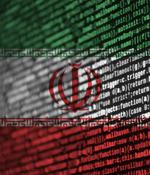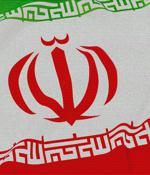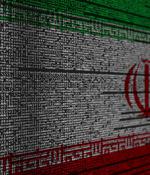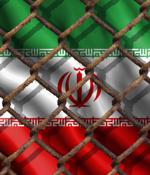Security News

Microsoft believes the gang who boasted it had stolen and leaked more than 200,000 Charlie Hebdo subscribers' personal information is none other than a Tehran-backed gang. On January 4, a previously unknown cyber-crime group that called itself Holy Souls claimed to have stolen a Charlie Hebdo database containing 230,000 customers' names, email addresses, phone numbers, addresses, and financial information, and offered it for sale for about $340,000.

The NSCS has attributed the campaigns to a Russia-based group called SEABORGIUM and the Iran-based TA453 group, also known as APT42. The threat groups target individuals working in academia, defence, government, non-government organisations, and think-tanks.

An Iranian cyber espionage gang with ties to the Islamic Revolutionary Guard Corps has learned new methods and phishing techniques, and aimed them at a wider set of targets - including politicians, government officials, critical infrastructure and medical researchers - according to email security vendor Proofpoint. Over the past two years, the threat actor group that Proofpoint's researchers track as TA453 has branched out from its usual victims - academics, researchers, diplomats, dissidents, journalists and human rights workers - and adopted new means of attack.

According to these internal documents, SIAM is a computer system that works behind the scenes of Iranian cellular networks, providing its operators a broad menu of remote commands to alter, disrupt, and monitor how customers use their phones. The tools can slow their data connections to a crawl, break the encryption of phone calls, track the movements of individuals or large groups, and produce detailed metadata summaries of who spoke to whom, when, and where.

The Iranian Atomic Energy Organization has confirmed that one of its subsidiaries' email servers was hacked after the ''Black Reward' hacking group published stolen data online.AEOI says an unauthorized party from a specific foreign country, which is not named, stole emails from the hacked server, which consisted of daily correspondence and technical memos.

Iran's Atomic Energy Organization has laughed off claims that the email systems of a subsidiary were compromised, revealing important operational data about a nuclear power plant. An activist group that calls itself Black Reward and claims to be from Iran took to Telegram last Friday with claims it had accessed an email server run by a company related to Iran's Atomic Energy Organization and exfiltrated 324 inboxes comprising over 100,000 messages and totalling over 50G of files.

Signal is urging its global community to help people in Iran stay connected with each other and the rest of the world by volunteering proxies to bypass the aggressive restrictions imposed by the Iranian regime. On Monday, the Iranian regime severely restricted internet connectivity in the country, imposing broad blocks on all ISPs, sometimes leaving internet users entirely offline for several hours.

Iran is experiencing a near-total internet service disruption in the west and intermittent interruptions nationwide, with access to Instagram, Whatsapp and some mobile networks being blocked, says Netblocks. While Twitter and Facebook were banned in Iran years ago, Instagram and WhatsApp remained as one of the few accessible social media platforms in the country.

The criminal charges come as Iran has apparently stepped up its malicious activity against America and its allies - exploiting well-known software vulnerabilities to conduct espionage, deploy ransomware, steal money, data and credentials and good old-fashioned election misinformation and meddling, according to the government and private security firms. The trio are accused of conducting a hacking campaign to break into computer systems of "Hundreds of victims" in the US, UK, Israel, Iran and other countries, according to court documents [PDF].

The US Treasury Department has issued sactions against Iran's intelligence agency in response to that country's cyberattack against Albania and other "Cyber-enabled activities against the United States and its allies." Earlier this week, NATO ally Albania cut its diplomatic relations with Iran after blaming a July cyberattack that hit its government infrastructure on Iranian state-sponsored attackers.